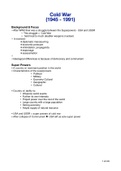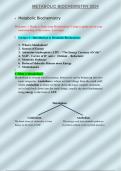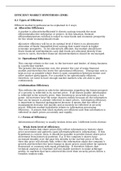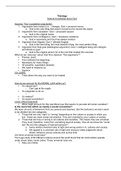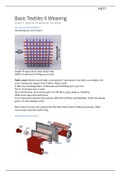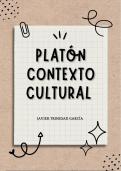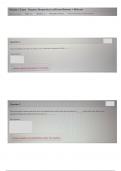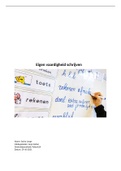Cold War
(1945 - 1991)
Background & Focus
✴ After WWII their was a struggle between the Superpowers - USA and USS
✴ This struggle = Cold Wa
✴ held treat to much deadlier weapons (nuclear)
✴ It involved :
✴diplomatic manoeuvrin
✴economic pressur
✴intimidation, propagand
✴espionage
✴assassinatio
✴
✴ Ideological differences is because of democracy and communis
Super Powers
• A country w/ dominant position in the world
• Characteristics of the superpowers
• Politica
• Militar
• Economy Cultura
• Geographi
• Cultura
• Country w/ ability to:
• In uence world event
• Further its own interest
• Project power over the rest of the worl
• Large country with a large populatio
• Strong econom
• Ample supply of natural resourc
• USA and USSR = super powers of cold war
• After collapse of Communism ▶︎ USA left as sole super power
1 of 20
fl y
l
c
n
y
l
e
s
g
s
a
r
e
n
d
m
R
, Reasons for tensions bt USSR & USA before the Cold War began
Reasons USA mistrusted the USSR: Reasons USSR mistrusted the USA:
• Communists believed capitalist system
• Communism threatened Western values was wrong bc rich ppl. prospered at
and way of life expense fo the poor
• WW I - Bolshevik part abandoned • Western powers sent aid to the White
Russian allies by making peace with army ( ghting against Bolsheviks in
Germany Russian civil war)
• 1930 - Stalin distrusted the policy of
• Disliked totalitarian polices which lead to: appeasement, suspecting the Britain
- Forced labour and France saw the Soviet as the real
- Public Trials enemy... not Nazi Germany - suspicion
- Deaths was strengthened by Soviets being
- The purges of 1930 excluded from the Munich Conference
(1938)
• Stalin signed Nazi-Soviet Non- • 1919 Allies gave away Russian lands to
Aggression Pact in 1939 other countries in Paris Peace
Conference
2 of 20
fi
, Yalta Conference
• February 1945:
• Key Issue = how to treat those nations that was under Nazi occupation ⇢ Allies and
Stalin’s ideas of a free and democratic government was very different from theirs
•
• WWII coming to close⏤ defeat of Germany = strong possibility ⇢ ideological
di erences bt. USSR & Western allies began to surface:
• Stalin (USSR), Churchill (Britain) and Roosevelt (USA) met to plan post-
war settlement → great tension behind o cial cordiality → agreements
reached = temporary compromises that didn’t settle bigger issues
• Decisions Made:
• Germany & city of Berlin divided into 4 zones →administered by USA, USSR,
Britain and France (respectively)⇢however no agreement on uniform system of
gov. in di . zones
• USSR occupied Poland ⇢promised free democratic elections to be held →
HOWEVER installed pro-Soviet provisional gov. ⇢Allied Declaration of Liberated
Europe formally committed USSR to follow policy of democracy in countries they
occupied.
• Stalin’s interpretation of democracy = v di . →however USSR agreed to
join:
• United Nations (aim was to keep peace)
• War against Japan after war in Europe over
• Stalin = determined to create against future German aggression bc USSR su ered
terrible losses during war
• ’Big Three’ agreed Eastern Europe = Soviet sphere of in uence
• Issues:
• No agreements reached regarding Germany paying reparations
• Stalin:
• Wanted xed sum = allies thought was to much
• Wanted border of Soviet Union to move westwards into Poland → and then
Polish borders moved westwards into Germany
3 of 20
ff fiff ffiff fl ff .
, Potsdam Conference
- July - August 1945:
• Continuation of Yalta Conference (this time war in Europe was over)
• Discussed: post-war settlement →
• Germany
• Reparations
• Eastern Europe
• Japan
• Stalin introduced to fact USA had atomic bomb ⌲ realised USSR was far behind
USA
•
• End of 1945 the ‘Cold War seed’ had been ‘sown’
• USA and USSR had no common enemy
• Soviet Union had no atomic bombs
- Main Decisions Made:
• Details of 4 zones of Germany nalised:
• USA,Britain, USSR & France = admins of of a zone
• Expected to collect reparations & property from their respective
zones → w/out sabotaging Germany’s economic stability
• Bc USSR’s zone was mainly rural the USSR was to receive
addition reparations (25%) from dismantled industrial equipment
from other zones
• USSR →exchange industrial equipment for food supplies (located
predominantly in the East)
• Germans living in Czechoslovakia, Poland and Hungary to return to Germany
- Issues:
• Disagreements bt USSR and the West had:
• Eastern Europe:
• Agreed at Yalta ⇥ pro-Soviet gov to be set up in Eastern Europe
• Truman⇢ opposed to this
• Separation line later referred to as Iron Curtain by Churchill
• Reparations:
• Stalin→ hoped to be compensated for death of 20mil Soviets
• Truman⇢ didn’t want to make same mistakes at end of WWI
• Germany:
• Stalin proposed→ Germany be crippled
•
• Truman objected⇢ did not want repeat Treaty of Versailles
4 of 20
fi
(1945 - 1991)
Background & Focus
✴ After WWII their was a struggle between the Superpowers - USA and USS
✴ This struggle = Cold Wa
✴ held treat to much deadlier weapons (nuclear)
✴ It involved :
✴diplomatic manoeuvrin
✴economic pressur
✴intimidation, propagand
✴espionage
✴assassinatio
✴
✴ Ideological differences is because of democracy and communis
Super Powers
• A country w/ dominant position in the world
• Characteristics of the superpowers
• Politica
• Militar
• Economy Cultura
• Geographi
• Cultura
• Country w/ ability to:
• In uence world event
• Further its own interest
• Project power over the rest of the worl
• Large country with a large populatio
• Strong econom
• Ample supply of natural resourc
• USA and USSR = super powers of cold war
• After collapse of Communism ▶︎ USA left as sole super power
1 of 20
fl y
l
c
n
y
l
e
s
g
s
a
r
e
n
d
m
R
, Reasons for tensions bt USSR & USA before the Cold War began
Reasons USA mistrusted the USSR: Reasons USSR mistrusted the USA:
• Communists believed capitalist system
• Communism threatened Western values was wrong bc rich ppl. prospered at
and way of life expense fo the poor
• WW I - Bolshevik part abandoned • Western powers sent aid to the White
Russian allies by making peace with army ( ghting against Bolsheviks in
Germany Russian civil war)
• 1930 - Stalin distrusted the policy of
• Disliked totalitarian polices which lead to: appeasement, suspecting the Britain
- Forced labour and France saw the Soviet as the real
- Public Trials enemy... not Nazi Germany - suspicion
- Deaths was strengthened by Soviets being
- The purges of 1930 excluded from the Munich Conference
(1938)
• Stalin signed Nazi-Soviet Non- • 1919 Allies gave away Russian lands to
Aggression Pact in 1939 other countries in Paris Peace
Conference
2 of 20
fi
, Yalta Conference
• February 1945:
• Key Issue = how to treat those nations that was under Nazi occupation ⇢ Allies and
Stalin’s ideas of a free and democratic government was very different from theirs
•
• WWII coming to close⏤ defeat of Germany = strong possibility ⇢ ideological
di erences bt. USSR & Western allies began to surface:
• Stalin (USSR), Churchill (Britain) and Roosevelt (USA) met to plan post-
war settlement → great tension behind o cial cordiality → agreements
reached = temporary compromises that didn’t settle bigger issues
• Decisions Made:
• Germany & city of Berlin divided into 4 zones →administered by USA, USSR,
Britain and France (respectively)⇢however no agreement on uniform system of
gov. in di . zones
• USSR occupied Poland ⇢promised free democratic elections to be held →
HOWEVER installed pro-Soviet provisional gov. ⇢Allied Declaration of Liberated
Europe formally committed USSR to follow policy of democracy in countries they
occupied.
• Stalin’s interpretation of democracy = v di . →however USSR agreed to
join:
• United Nations (aim was to keep peace)
• War against Japan after war in Europe over
• Stalin = determined to create against future German aggression bc USSR su ered
terrible losses during war
• ’Big Three’ agreed Eastern Europe = Soviet sphere of in uence
• Issues:
• No agreements reached regarding Germany paying reparations
• Stalin:
• Wanted xed sum = allies thought was to much
• Wanted border of Soviet Union to move westwards into Poland → and then
Polish borders moved westwards into Germany
3 of 20
ff fiff ffiff fl ff .
, Potsdam Conference
- July - August 1945:
• Continuation of Yalta Conference (this time war in Europe was over)
• Discussed: post-war settlement →
• Germany
• Reparations
• Eastern Europe
• Japan
• Stalin introduced to fact USA had atomic bomb ⌲ realised USSR was far behind
USA
•
• End of 1945 the ‘Cold War seed’ had been ‘sown’
• USA and USSR had no common enemy
• Soviet Union had no atomic bombs
- Main Decisions Made:
• Details of 4 zones of Germany nalised:
• USA,Britain, USSR & France = admins of of a zone
• Expected to collect reparations & property from their respective
zones → w/out sabotaging Germany’s economic stability
• Bc USSR’s zone was mainly rural the USSR was to receive
addition reparations (25%) from dismantled industrial equipment
from other zones
• USSR →exchange industrial equipment for food supplies (located
predominantly in the East)
• Germans living in Czechoslovakia, Poland and Hungary to return to Germany
- Issues:
• Disagreements bt USSR and the West had:
• Eastern Europe:
• Agreed at Yalta ⇥ pro-Soviet gov to be set up in Eastern Europe
• Truman⇢ opposed to this
• Separation line later referred to as Iron Curtain by Churchill
• Reparations:
• Stalin→ hoped to be compensated for death of 20mil Soviets
• Truman⇢ didn’t want to make same mistakes at end of WWI
• Germany:
• Stalin proposed→ Germany be crippled
•
• Truman objected⇢ did not want repeat Treaty of Versailles
4 of 20
fi


